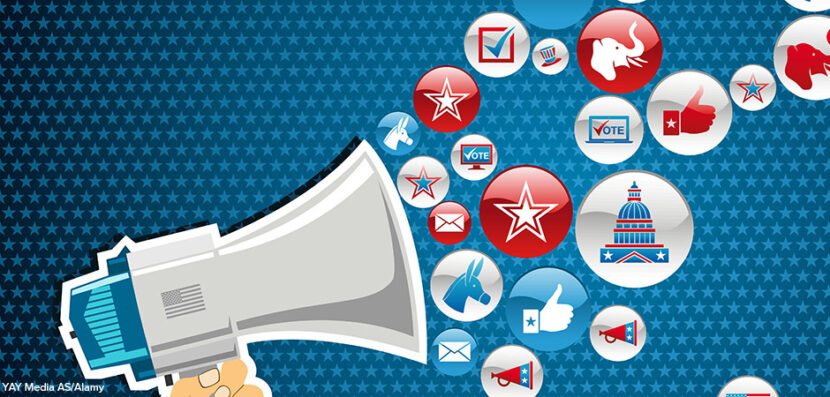- Current Events New Alabama Congressional District Selects Candidates
- Current Events Nebraska Rejects Winner-Take-All Proposal
- Citizenship Voting Under Age 18
- Citizenship Citizenship in Action
- Democratic Party Biden’s and Trump’s Recent Primary Results
- Elections Trump and Biden Win South Carolina and Michigan Primaries
Democratic Debates: Round 1
What happens when twenty candidates are all competing to become the next Democratic challenger for president of the United States? In this case, the debate was split into two different nights to accommodate (almost) everyone–with ten candidates speaking each night. Last Wednesday and Thursday evenings, millions of Americans were able to view the debates live from Miami on national television. Here, Election Central takes a closer look at the key moments from each night.
Night #1
Senator Elizabeth Warren (Massachusetts) began the night as the highest-polling candidate on stage. She was joined by Senator Cory Booker (New Jersey); Mayor Bill de Blasio (New York City); Senator Amy Klobuchar (Minnesota); former Representative Beto O’Rourke (Texas); former Housing and Urban Development secretary Julian Castro; former Representative John Delaney (Maryland); Representative Tulsi Gabbard (Hawaii); Governor Jay Inslee (Washington); and Representative Tim Ryan (Ohio).
Overall, the tone of the debate was polite and understated. Because it was only the first debate, political analysts felt that the candidates may have been holding back a bit with each other. Surprisingly, Trump was barely discussed. Warren shared her policy proposals for addressing the growing wealth gap in the U.S, while O’Rourke seemed to struggle coming up with any specific plans for action. Julian Castro did a good job speaking up for minority groups and Americans facing poverty. Only Warren and deBlasio indicated that they are in favor of eliminating private health insurance. But in general, none of the candidates really stood out at this very early stage.
Night #2
Due to random selection, more of the lead-polling candidates appeared at the second debate: former Vice President Joe Biden; Senator Kamala Harris (California); Senator Bernie Sanders (Vermont); and Mayor Pete Buttigieg (South Bend, Indiana). Joining them were Senator Kirsten Gillibrand (New York); Senator Michael Bennet (Colorado); former Governor John Hickenlooper (Colorado); Representative Eric Swalwell (California); writer Marianne Williamson; and entrepreneur Andrew Yang.
Vice President Biden began the night with a slim polling lead over the other candidates. But unlike the first night of the debates, the second night allowed Kamala Harris to improve her position against her other Democratic rivals. Harris’ confrontation of Vice President Biden about his record on race relations and desegregation was considered by many political experts to be a critical moment of the debate. Mayor Pete Buttigieg answered with honesty and sensitivity some tough questions about the recent fatal shooting of a black man by a police officer in South Bend.
In comparison, Vice President Biden didn’t fare quite as well. Though experts agree that he began the night strong, Biden’s tense exchange with Harris left him on the defensive. Senator Sanders also didn’t perform as well as expected and was often overshadowed by the other candidates. On the issues, all ten candidates agreed that undocumented immigrants should have access to government health care programs, while Sanders, Harris, and Gillibrand all said they agree with a Medicare-for-all health care system.
So, Who “Won”?
First, a few clarifications. No candidate actually “wins” a debate because it is not set up to score any sort of definite set of points. Everything about how candidates perform on stage and answer questions is a judgment call and is subject to bias. But if you read other news stories about the events, you will see that such political activities are often discussed like sporting events. Second, you must remember that there are many, many months to go in the election cycle. Much can change between now and November 2020.
Senator Harris seems to have gained the greatest boost from her performance. Senator Warren and Mayor Buttigieg did well and most likely didn’t harm their campaign momentum. But perhaps Vice President Biden and Senator Sanders did not perform as well as they had hoped? Overall, the debate topics and candidate answer suggest the Democratic Party’s support for leftward-leaning policy ideas. This means that more liberal members of the party are likely getting more influence over more middle-of-the-road candidates . . . at least for the moment.



